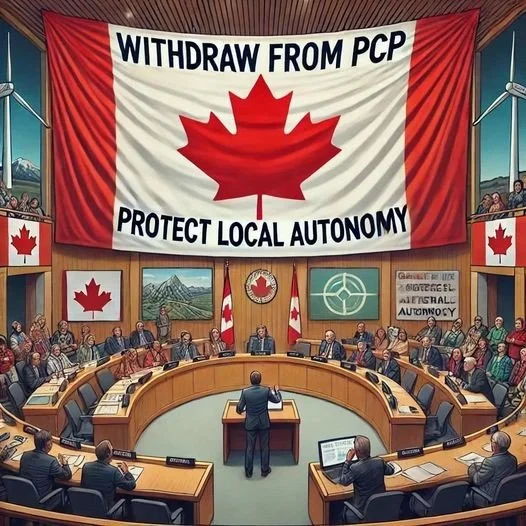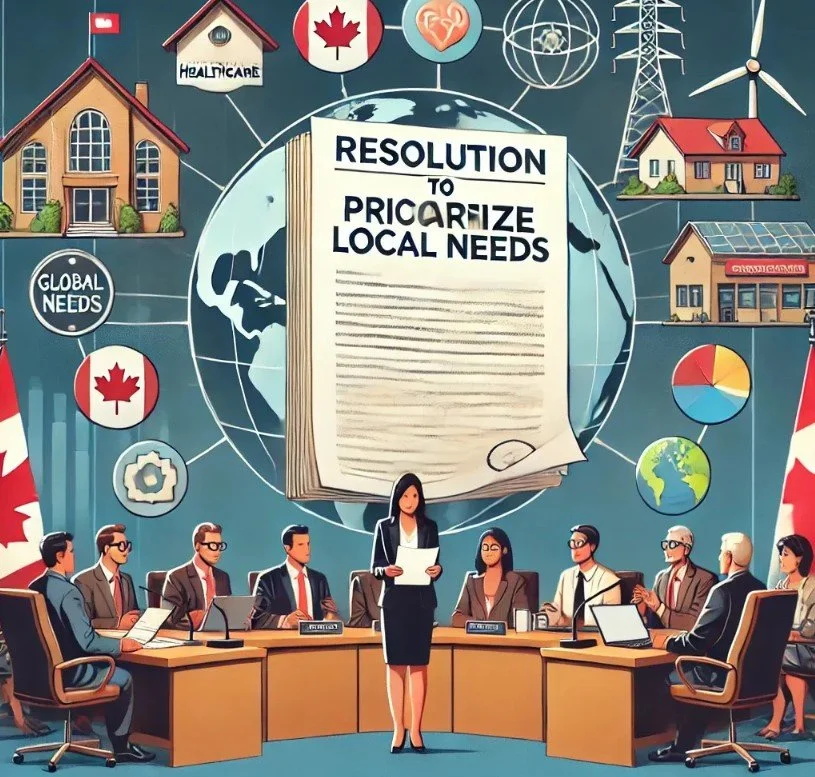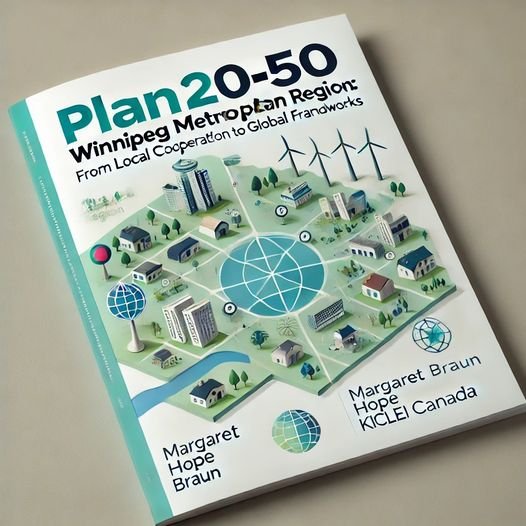Introduction to the PCP Program Reports
This overview examines the challenges Canadian municipalities face under the Partners for Climate Protection (PCP) program, influenced by UN sustainability frameworks like Agenda 21. While environmental protection remains essential, this report highlights critical issues tied to PCP’s goals that may clash with local autonomy, financial priorities, and community-specific needs.
Key Findings
Privacy and Data Concerns: The PCP mandates extensive data collection on energy and waste, raising concerns about data security and privacy, particularly with ICLEI’s partnerships with corporate funders like Google and BlackRock.
Financial Impact: PCP’s initiatives add financial strain on municipalities, with costly requirements like electric vehicle fleets, green building standards, and energy audits, which could lead to increased taxes or cuts to essential services.
Local Autonomy Risks: PCP’s global targets may interfere with local governance, aligning more with international agendas than community-specific needs. This shift challenges local decision-making power and risks undermining Canada’s jurisdictional autonomy.
Sector-Specific Impacts: The program influences critical sectors:
Housing and Construction: Rising costs from green standards exacerbate Canada’s housing crisis.
Agriculture: Land use restrictions affect farmers’ control and local food security.
Energy Security: Net-zero targets could undermine energy affordability, vital in Canada’s vast, cold climate.
Real-World Example
Edmonton, Alberta: Edmonton invested $60 million in electric buses only to face severe setbacks after the bus manufacturer declared bankruptcy, highlighting the need for adaptable, cost-effective local policies.
Alternative Recommendations
The report suggests that municipalities withdraw from the PCP program and adopt locally-driven environmental initiatives, that prioritize community well-being and are more adaptable to local needs.
For a detailed examination, including case studies and alternative strategies, read the full report.
Reports on UN Directives and Programs
Recent Reports and Studies
Regional Reports and Studies








